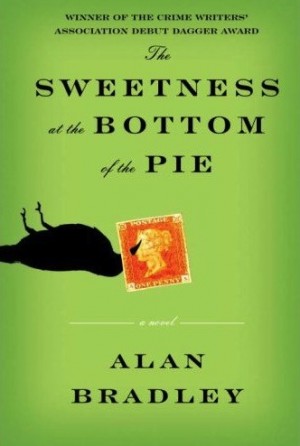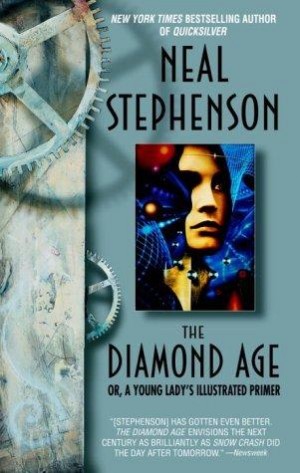Good Stuff
Things people around here have enjoyed of late:
THINGS:
My sewing machine. It was in the shop for weeks, and now it’s back. I am happy. We had it whirring all afternoon: I am months behind in our online quilting bee.
GAMES:
Apples to Apples. The Shakespeare Club kids always pull this out after we’re done Barding for the day. It’s a hoot. Scott’s not big on board games but the girls and I talked him into a round of Apples on Thanksgiving Day, and he had a great time. (It’s a word game, really, not a board game.)
Music Ace Deluxe. This music theory computer game was sent to me for review, and I have to say my middle kids (especially Rose, the eleven-year-old) have really enjoyed it. It hones sight-reading skills and packages some solid music theory instruction in fun, cartoony games. Rose and Bean are tremendously fond of the grinning musical notes that frequent many of the activities. But the $80 price tag is rather daunting, and even the $58 Amazon price is hefty.
MOVIES:
Our family watched Harvey last week and it was every bit as delightful as I remembered.
BOOKS:
 The Sweetness at the Bottom of the Pie, a Flavia de Luce novel by Alan Bradley.
The Sweetness at the Bottom of the Pie, a Flavia de Luce novel by Alan Bradley.
Scott read it and passed it to Jane. I’m up next, I suppose. I don’t know anything about it except that it’s a mystery, which is always promising. UPDATED LATER: Loved, loved, loved this book—the precocious young narrator, unabashedly impish, far too smart for her own good, obsessed with poisons, left alone with a chemistry lab, meddling, spying, getting herself into terrible danger as she unravels a local mystery. Highly recommended.
 The Diamond Age by Neal Stephenson.
The Diamond Age by Neal Stephenson.
What a ride this tome was! A couple of my comic book writer friends recommended it to me—both are big Stephenson fans, and both thought I’d enjoy this novel in particular because of its focus on the education of young girls. (Its subtitle is A Young Lady’s Illustrated Primer.) It’s a postcyberpunk novel, set about a hundred years in the future, in a time when nanotechnology is commonplace and national boundaries have given way to cultural allegiances and global economic protocols. Most people belong to a tribe or “phyle,” adhering to a certain set of cultural mores and traditions. Among the most powerful and populated phyles is the Neo-Victorian culture, which thrives in wealthy, protected communities all over the world; the Vickys have chosen to adopt certain attributes of the original English Victorians, including dress, manners, and a moral code. Other influential phyles include the Han Chinese, the Nippon, and the Hindustan.
So, yeah, Neo-Victorians, nanotech, and education: this novel had me at hello. Top-notch world-building; there’s a little dose of cyberpunk in the opening, with a ruffian named Bud getting himself fitted up with a skull gun that fires explosive bullets upon his mental command; and then we’re whisked off to New Atlantis/Shanghai, the home base of a thriving Neo-Victorian community, where the upper crust are Equity Lords (aristocrats by dint of their corporate ties) and the birthday entertainments involve creating fairylands that rise out of the sea for a day, thanks to the limitless possibilities of molecular manipulation. There is something delightful about this melding of Dickensian characters and futuristic tech.
One of the upper-crustiest of the Equity Lords is an elderly gent who, for all he esteems his phyle and works to protect and promote it, rues the loss of opportunity for young Neo-Victorians to experience character-building adversity. His adult children missed out on something important, he believes—after all, he himself grew up on an Idaho farm, was homeschooled until age fourteen, pulled himself up by his bootstraps and all that. He determines to offer his granddaughter an alternative to the soft Vicky upbringing, in which status and comforts are often taken for granted by those born and raised in the phyle. To this end, he hires a gifted techno-engineer, one John Hackworth, to create a sophisticated, interactive book-slash-computer, the Primer, which will provide his granddaughter with personalized instruction in academic subjects, ethics and morals, handcrafts, self-defense, computer programming—pretty much everything under the sun.
Hackworth rises to the challenge…Hackworth, who, as it happens, has a young daughter of his own. He attempts to procure a bootleg copy for four-year-old Fiona, and therein lies the tale. The illicit copy of the Primer goes astray and winds up in the hands of a young thete child—thetes belong to no phyle at all—named Nell. As in “little Nell”—a Dickensian waif full of pluck, growing up in dreadful circumstances in a cold, cruel world. If ever a child needed a Magic Book, it’s Nell. Well, and Pip, and David Copperfield, and Oliver Twist…but no, really, Nell’s in worse straits than all those lads (her mother, Tequila, has worse taste in men than David Copperfield’s mum), and we’re thrilled to see the Primer offer her some tools for digging her way out of the squalor.
Hmm, it seems The Diamond Age is taking over this post. This is appropriate, considering it took over the entire month of November. Actually, that’s not accurate: I began this book in October and was glued to the first 300 pages. In the last quarter I thought it bogged a bit and I wound up setting it aside for a while. I finished it over Thanksgiving weekend, and though I have quibbles, I am thoroughly glad I read it. As bildungsromans go, this was a doozy.
I’ll try to revisit it in a proper review later on. Right now there’s a sweaty infant head cutting off the circulation in my left arm and the laptop battery is burning my leg. Time to tuck this computer in for the night.
